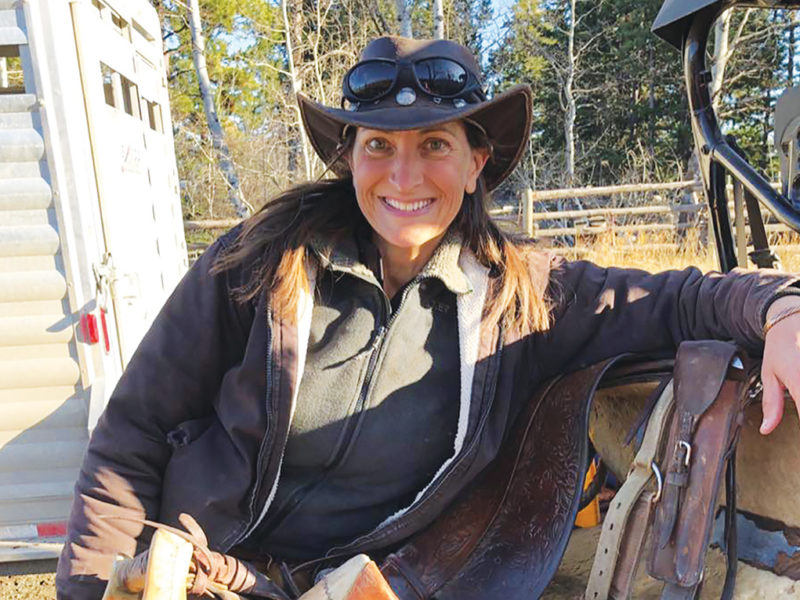MERRITT – BC meat producers are frustrated that the province is spending more time studying how to help them than getting on with acting on its findings.
The BC Ministry of Agriculture released an intentions paper September 14 aimed at modernizing rural slaughter practices, but Julia Smith of the Small-Scale Meat Producers Association says the government doesn’t seem to realize the urgency of the situation.
“The intentions paper talks about undertaking a risk assessment project to support development options for rural meat production,” says Smith. “It’s too late for that now. Many operations simply cannot survive another round of consultations.”
Smith says the slaughter and cut and wrap capacity in BC is facing a serious crisis that will only accelerate in the coming months. Abattoirs are already cancelling bookings that were made months ago, she says, and producers are being left with literally nowhere to process their animals legally.
“The government has an opportunity here to provide relief and oversight during a global pandemic that could be a catalyst for long-lasting, progressive change in the future,” she notes.
But the government already knows that. It first began talking with the industry back in 2016. There were numerous consultations and a standing committee of the legislature delivered a report on the situation in 2018.
Nova Woodbury, executive director of the BC Association of Abattoirs, says her members are tired of saying the same things.
“I have 10 Word documents open right now that are past submissions I have made to the ministry and I am trying to consolidate them into yet again another response,” she said.
This is the worst time of the year to try and talk to the industry, Smith adds.
“September is not the time of year to initiate meaningful consultation with the farmers and ranchers,” she says. “Implement some emergency measures now and continue to consult through the winter to hammer out more permanent changes for the spring.”
Overall, the intentions the province outlines are good and reflect what many in the industry have been saying. They include increasing the standards of inspection for class D and E plants to more closely align their uninspected slaughter practices with those of inspected class A and B processors.
“This paper provides the support the industry has been asking for and gives reassurance to members of the public that food safety and animal welfare standards are going to be enforced,” says Woodbury.
The paper follows the province’s decision in August to consolidate all meat inspection in the province under the agriculture ministry’s Meat Inspection Branch, a change effective December 1. (While the branch oversaw inspections at class A and B plants, D and E facilities were under the BC Ministry of Health.)
The intentions paper focuses on four key areas: public health and safety, innovation, regulatory efficiency and strengthening the provincial food supply.
Public health and safety is where improving oversight, increasing inspections and updating codes of practice for D and E facilities fall.
Virtual inspections, post mortem inspections and third-party involvement in inspections is part of innovation. The framework for D and E processors could also be updated.
Regulatory efficiency will be addressed by working with FrontCounter BC to improve the licensing process.
Aiming to strengthen the provincial food supply, the government acknowledges that demand is increasing for local meat. But that isn’t a new or unexpected issue, Smith points out.
“We were already struggling to meet the growing demand long before COVID hit,” she says. “A resilient and diverse local food supply chain isn’t something we should have just in case the ‘real’ food supply chain breaks down. It should be the norm and we need appropriate infrastructure and regulations that reflect this.”
The deadline for public feedback is November 16*. The province promises to begin making regulatory and policy changes by the end of the year.
Woodbury hopes there is money for the government to follow through. She notes that the meat inspection branch moved to cut costs last year by mandating restrictions on overtime.
Smith urges the province to use taxpayers’ dollars wisely.
“Instead of spending money on more consultation, spend it to support abattoirs to expand, local butchers to expand, and new people to open slaughter and butcher facilities,” she says.
With the province announcing $1.5 billion in funding last month for economic recovery from the COVID-19 pandemic, Smith believes there’s no better time for action.
“If we were ever going to make something happen quickly, it is now,” she says.
[The deadline for feedback was extended to November 16 after this story went to press.]

 A new generation keeps the family greenhouse growing
A new generation keeps the family greenhouse growing